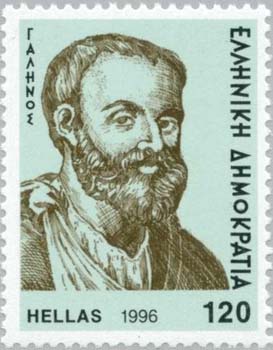
[Continued from the previous
post — but also independent]
My rabbi uses the following example: one can suffocate from breathing in poison or from not breathing at all. If one is not breathing, it is not enough to say: “Well, he is not taking in poison either, is he? So, he must be fine.” If one is not breathing, it’s as dangerous as if one is taking in poison.
If you look at the way carbon monoxide, a common poison leading to suffocation, works, however, words of Alter Rebbe may become even clearer. Carbon monoxide binds hemoglobin and myoglobin, proteins used as transporters of oxygen in red blood cells and muscle cells respectively, in the same sites that oxygen binds. Because carbon monoxide’s chemical affinity to these proteins is higher, it acts as an active competitor of oxygen, thus preventing the latter from reaching the living cells — and resulting in suffocation.
So, one way to look at the world is by dividing it into three categories: required by Torah, forbidden by Torah and permitted by Torah (which is not forbidden per se, but not required specifically for service of Torah). The other way to look at the world is by dividing it into two categories: that which connects me with my Father in Heaven and that which doesn’t.
If I am not connected to my Father in Heaven, G-d forbid, then I am suffocating. Whether it’s because I am ingesting poison or because I am not breathing, or perhaps because the poison prevents me from breathing. In the end, it doesn’t matter. Either I am breathing or I am not breathing.
As Chassidim of old used to say, that which is forbidden is forbidden, and that which is permitted is unnecessary.
* * *
Now, we were sent into this world to elevate it. To make it a dwelling place for G-d’s Essence. It’s all very well to be high, pure, holy and connected with G-d’s Light, but His Essence is to be found and encountered specifically in the darkness of the
reishus, the permitted. But that’s exactly the point and innovation of Torah in general and Chassidus in particular: it allows an individual to elevate even the mundane.
When you put your clothes on in the morning, why do you do it? If you do it because Hashem wants you to keep tznius — and if you do it according to Hashem’s Will (e.g., right shoe on first, etc.) — then you elevate a mundane act of wearing clothes.
If you eat an apple because you like its taste, you just connected to physicality of the apple — which by its nature denies existence of G-d (otherwise, it wouldn’t be material). If, however, you eat an apple because you’re required to eat in order to survive (or because by eating an apple — or, more appropriately, a piece of meat, you’re able to concentrate better on your Gemara), you have just elevated it.
This is why it is said that the main field of battle against
sitra achra (lit., “the other side”, i.e., the forces of unholiness that define this world by concealing G-d from it) is in the realm of
reishus, the permitted. If Torah requires you to do it — nu, of course you do it. If Torah forbids you to do something — of course you don’t do it. Those things are not even under consideration. But what if Torah permits something to you — do you engage in it for the sake of itself or for the sake of G-d?
Light will remain light. Darkness which cannot be broken through will remain darkness (until the coming of Mashiach). But the darkness that can be illuminated — which way will it be? It’s up to you.
* * *
Now, some people seem to use the above idea, shockingly, to allow themselves to indulge in the world for its own sake. These are frum Jews (but not Chassidim) who say: “Look, back in the day there was Torah and the outside world. If you engaged in Torah, you were holy, but if you engaged in the outside world you became unholy. But, came Chassidus and introduced the doctrine of elevating the mundane, so now we can go to a movie, eat an ice cream, watch a football game — and be holy at the same time. After all, if we are wearing tzitzis and yarmulkeh while doing this, if we are not, G-d forbid commiting any aveiros, we are actually elevating the mundane.”
I am sorry, but I don’t think it works this way. Alter Rebbe is very clear in Chapters 6–8: things have to be used specifically as means of connecting to Hashem (i.e., keeping mitzvos).




